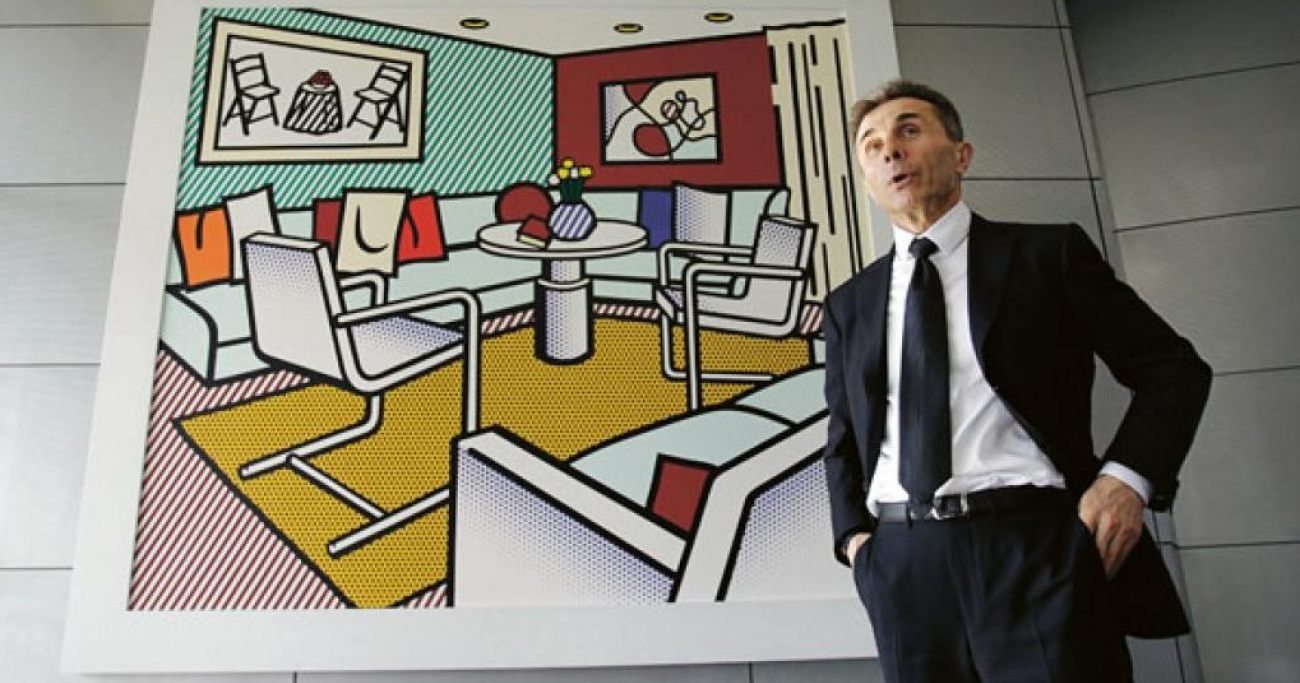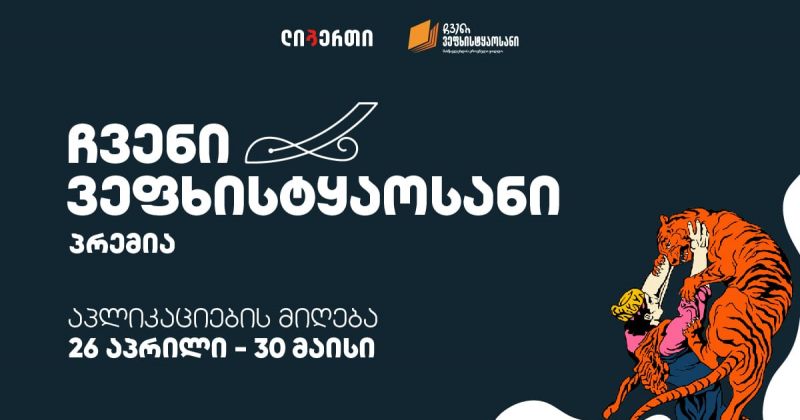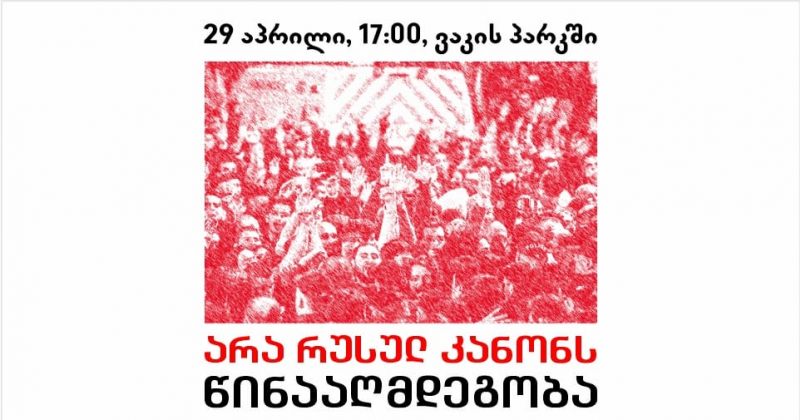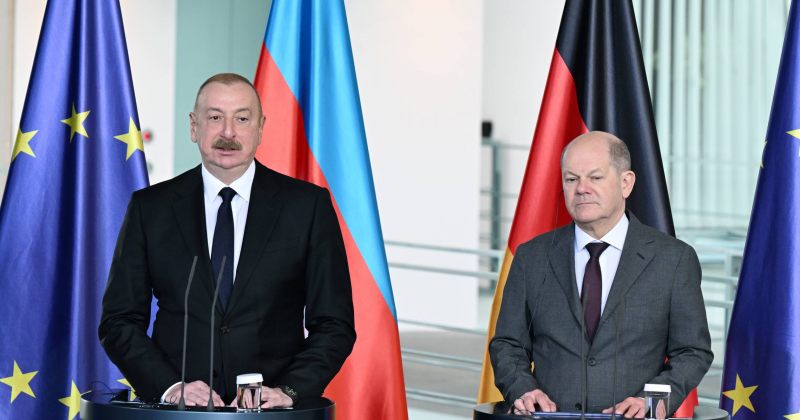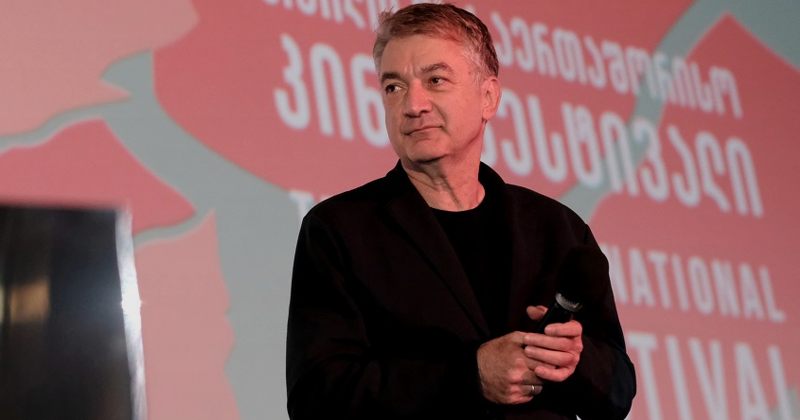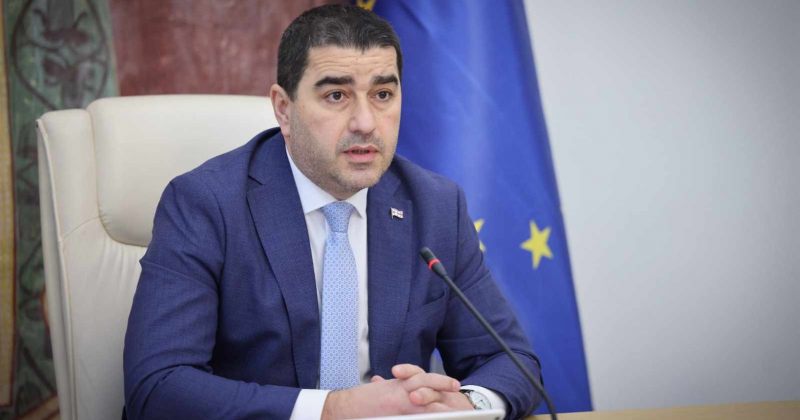It has been several weeks now since Bidzina Ivanishvili decided to toss his hat into the political ring with the expectation of defeating the ruling party in the 2012 parliamentary elections. The billionaire’s unexpected move has enlivened what until then had been a rather dull domestic political life. The government now has a new rival – a person with a reputation as a philanthropist with vast financial resources at his disposal and no smear of political intrigue in his past – and the opposition now has a leader.
Too little is known yet to gauge the extent to which Ivanishvili might have an impact on the (low) degree of Georgian political culture. What we already know does not provide grounds for optimism.
Ivanishvili’s Interviews and letters released in October, described by The Economist as “rambling and eccentric,” give no clue about his political vision or ideology. They do, however, create a clear if curious impression of the scope of his political reasoning.
The billionaire pledges to sort out relations with Russia without conceding Georgia’s independence; to create “such a real democracy” that will astonish even Europe; to arrange the economy in such a way as to harm neither business nor pensioners; to set up such a judiciary that no one would question its independence. As to the pivotal question – “How are you going to achieve all this?” – he responds that he does not know yet and will decide that later together with specialists. Who are those specialists? He has not figured that out yet either. Nevertheless, he is sure that he will come to power with an “absolute majority” within a year or so.
It seems eccentric as well that Ivanishvili plans to establish astonishing democracy in the country in two or three years after he comes to power and then switch over and lead the opposition against his own astonishingly democratic government. The billionaire realizes that this idea is outlandish. A plan to create his own political party so he can oppose it once it succeeds is not exactly conventional political practice anywhere in the world. Has anyone ever heard a candidate say, “Vote for my party which I will desert after two years in order to oppose it”? But Ivanishvili wants to establish such a precedent.
The political naïveté of this new opposition leader cannot help but astound you. He rebukes others; instructs everyone on how to behave; and simultaneously condemns and commends politicians, journalist and experts alike. He spends an inordinate amount of time describing his personal relations, as if it is very important for the Georgian society to know what he thinks about, for example, political analyst Ramaz Sakvarelidze.
It is obvious that Bidzina Ivanishvili closely follows local media, watches Maestro and Kavkasia TV stations, even quotes from some TV reports. Print media also falls within the range of his close interest. The result is apparent: One can boldly state that his “adequate” understanding of the balance of power within the ruling party and, in general, of the political spectrum, places Mr. Ivanishvili second to none.
All this would be comical if it were not for one fact: Ivanishvili has too much money.
That material fact has already been put into action – demoralized opponents of the ruling party seem to have regained hope. The once-quiet enclave adjacent to the Botanical Garden is now bustling with politicians and intelligentsia who queue up in a long row at the billionaire’s front gate.
This picture seems to remind everyone of 2007 and Badri Patarkatsishvili. The same thing happened then: Nearly a year before the elections and several months before the NATO Summit in Bucharest, that other infatuated-with-philanthropy Georgian billionaire decided to engage in political processes with the aim of dislodging the government. A queue of money-seekers instantly showed up on his doorstep too.
The similarities are striking, but there are a number of important differences between the two billionaires’ respective starting positions:
- Patarkatsishvili was a socially active figure; he was seen, heard and known. Bidzina Ivanishvili has until now lived like a hermit; the public saw and heard him for the first time ever only a few weeks ago.
- Patarkatsishvili owned a TV station which conducted a targeted anti-government campaign for three years. Bidzina Ivanishvili closed down his dysfunctional Channel Nine and launched his political career by offending opposition TV channels.
- Patarkatsishvili gained experience in TV media and politics in Russia as the business partner of Russian oligarch-turned-dissident Boris Berezovsky. Bidzina Ivanishvili started watching TV, as he himself noted, after the presidential elections in 2008 and only then became aware of political processes.
- During Patarkatsishvili’s time, political opposition forces were not as discredited as they are now. Nor was the public Cassandra-like attitude toward the protest as strong then as it is now.
- Patarkatsishvili started building a political infrastructure in a friendly environment because he had allies in the government, first in Eduard Shevardnadze, Vazha Lortkipanidze and Kakha Targamadze, and then in Zurab Zhvania and Nino Burjanadze. Bidzina Ivanishvili has no such allies.
- When Patarkatsishvili was on the political scene, a serious rift took place in the ruling party – one of its key political figures, Irakli Okruashvili, switched over to join the opposition. Today, the likelihood of such a development is minimal.
Despite all these seeming advantages, Patarkatsishvili garnered only seven percent of the vote in the presidential elections and the “regime” remained in place when he passed away. Even so, the Patarkatsishvili-factor damaged the country’s development. Helped by mistakes made by the government itself, the oligarch managed to undermine Georgia’s image, both inside and outside the country, by portraying the team of President Saakashvili as overly impulsive.
It is naturally interesting to ponder what impact the Ivanishvili-factor may have.
Nothing much is known about the Ivanishvili mindset and not much more is likely to be learned about it in the future. His philanthropic activities, however, do display certain ideological contours – private communism. This makes him an attractive figure for such Soviet remnants as the intelligentsia. Members of the intelligentsia discern in Ivanishvili those privileges that once insulated them from fair competition, privileges not earned through their work but claimed as a matter-of-right because they belonged to an elite institution. Their affinity virtually assures intelligentsia support of Ivanishvili. Similarly, zealous supporters of the Church almost certainly will convert to the Ivanishvili mission. Like Imedi TV during Badri Patarkatsishvili’s time, Ivanishvili has made a point of accusing the government of offending the Church.
For Ivanishvili to enter politics, he must create and finance a political party or alliance of parties. Georgian law, however, would allow him to spend only GEL 130,000 of his multi-billion fortune (estimated at USD 4.8-billion) to do that. To thwart political corruption and monopolization of the process, the law limits political contributions from a physical person to no more than GEL 30,000 and from a legal person to GEL 100,000. Those limits apply to contributions even to one’s own party. No one contends that GEL 130,000 per year is all that much for a political party. By comparison, a survey of political party funding by Transparency International shows that the ruling party, United National Movement, received GEL 11.6 million in 2008 just from legal entities. Of course, Ivanishvili will only be able to set up a political party if he succeeds in regaining his Georgian citizenship – either by winning his court case or by convincing the Georgian President to reinstate it – because foreign citizens are prohibited from creating or financing a political party.
Illegal funding may once have been a way out of such a predicament, but times have changed - hard to believe Government will close eyes to that. Moreover, Ruling Party proposed amendments to make Party Financing Legislation tougher referring to the experience of democratic countries and recommendations of international organizations.
The billionaire seems especially anxious to invest in media. When he announced his entry into politics, he even publicly offered money to journalists – apparently unaware that politicians are not supposed to do that. This is not that surprising given his ignorance of the law affecting his Georgian citizenship. He also seems to be unaware that, if he creates a political party, he will not be allowed to own a TV station. Had he known that, he probably would not have offered publicly to pay three times market price to buy a Georgian TV station. Now that the Law of Broadcasting has been amended to require the transparency of TV station ownership, he will not be able to buy a TV station anonymously either.
In light of these circumstances, it will be difficult, to say the least, for Ivanishvili to win an “absolute majority” in next year’s parliamentary elections. Even his “absolute majority” pledge is problematic for the billionaire – it is uncomfortably reminiscent of Badri Patarkatsishvili’s “everything-or-nothing” principle of winning with one decisive battle and even resorting to instigating mass civil disorder.
None of this is meant to suggest that Ivanishvili will not cause damage to the government. In fact, he has already done that – and not without the unwitting help of the ruling party, which has failed to communicate effectively with the population. But we also know that even when the National Movement looks like a tired and disintegrated force, it rallies in times of crisis and starts playing in harmony like a well-tuned orchestra.
Money is always good to have, but it alone cannot ensure the newcomer’s success in politics. Ivanishvili needs to accumulate political capital by convincing voters of his viability as a political leader. What he has shown the public so far makes it questionable whether he will succeed in doing that. The only thing one can say for sure is that Bidzina Ivanishvili has been established as a messiah – the number of political corpses he has raised from the dead is living proof.

